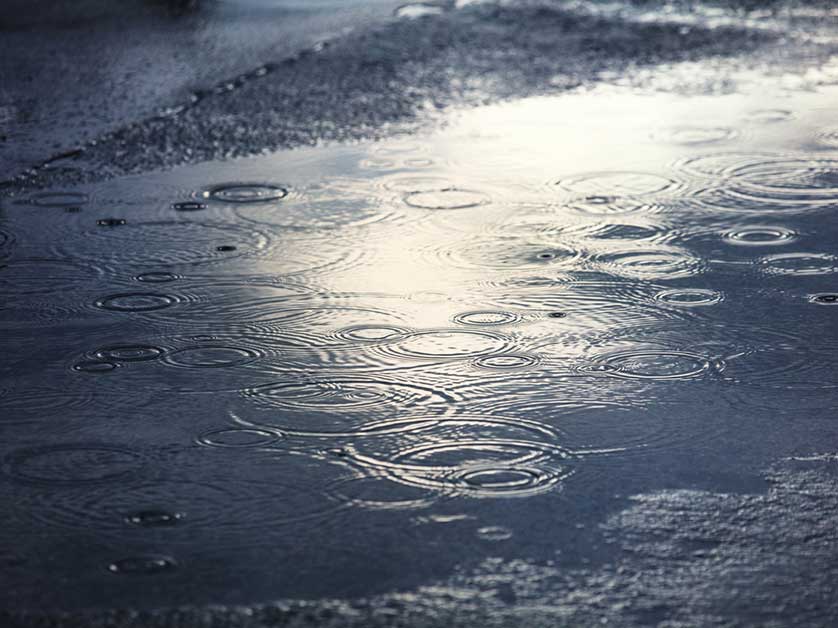
When it comes to laying down new asphalt, whether it be for driveways, parking lots, or roadways, one critical factor that cannot be ignored is the weather—especially rain. For residents and businesses, understanding how rain interacts with fresh asphalt is crucial due to the area’s climate, which can include sudden rain showers, especially during the hurricane season. In this blog post, we will delve into the complexities of rain on fresh asphalt and provide insights on how to mitigate potential damage.
Understanding Asphalt and Rain Interaction
Fresh asphalt is particularly susceptible to rain. Asphalt consists of a mixture of aggregates (such as gravel and sand) and bitumen, a sticky, black, and highly viscous liquid. Bitumen acts as a binder, holding the aggregate together. When fresh asphalt encounters rain, there are a few key reactions and potential issues:
- Oil and Water Reaction: The bitumen in asphalt contains oils that can react unfavorably when mixed with water. Rainwater can cause these oils to rise to the surface, hindering the curing process, and making the asphalt less durable and more prone to damage.
- Subsoil Stability: In areas where the ground holds moisture, heavy rain can further saturate the subsoil. This saturation can lead to a softer base, reducing the asphalt’s ability to properly compact and cure, potentially leading to instability.
- Erosion and Washouts: In areas prone to heavy rainfall, newly laid asphalt can suffer from erosion or washouts. This is particularly true if the rain occurs before the asphalt has had enough time to properly set and harden.
Preventing Damage to New Asphalt
Schedule Projects Wisely
In regions where weather can be unpredictable, it’s important to schedule asphalt paving projects during drier seasons or periods of clear weather forecast. Planning is crucial to avoid the disruptions caused by rain.
Proper Installation and Drainage
Ensuring that your asphalt paving is done by professionals is paramount. Expert installation includes proper grading and drainage planning to prevent water accumulation on the asphalt surface. Proper drainage ensures that water is channeled away, reducing the risk of water-related damages.
Early Sealcoating
While sealcoating is not recommended immediately after laying new asphalt (as it needs time to cure), scheduling it a few months after installation can offer additional protection from rain and water penetration. Sealcoating seals the asphalt surface, preventing moisture from seeping into the pavement and causing damage.
Conclusion
The impact of rain on fresh asphalt cannot be overlooked. Understanding the potential damages rain can cause and taking proactive steps in planning, installation, and maintenance can greatly extend the life and appearance of your asphalt paving.
Bonness is ready to answer and offer tailored advice for your commercial or residential project. Call us at (239) 597-6221 or visit our contact page to schedule a consultation.
